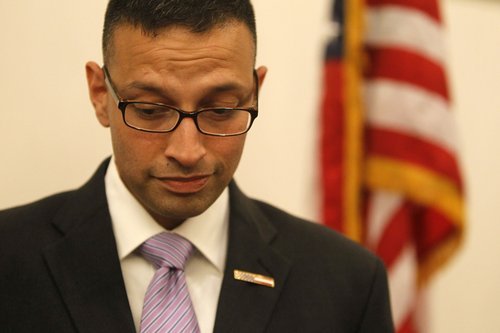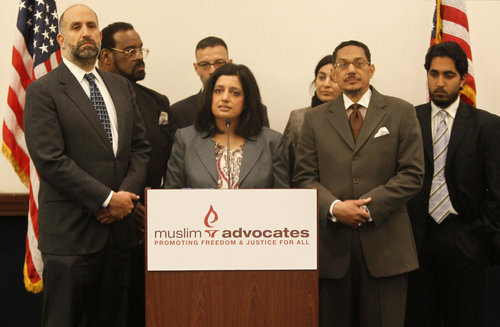
One case — Muslim Community Ass’n of Ann Arbor v. Ashcroft — brought this issue to US federal courts in 2003. Muslim and Arab organizations in Michigan sued then-Attorney General John Ashcroft and then-director of the FBI, Robert Mueller, for violating their Constitutional Rights for surveillance that was supposedly authorized by the Patriot Act.
The plaintiffs alleged that surveillance carried out under authority of the Patriot Act violated their Fourth Amendment, Fifth Amendment and First Amendment rights in five major ways:
1) it violates the Fourth Amendment by authorizing the FBI to execute searches without criminal or foreign intelligence probable cause;
2) it violates the Fourth Amendment by authorizing the FBI to execute searches without providing targeted individuals with notice or an opportunity to be heard;
3) it violates the Fifth Amendment by authorizing the FBI to deprive individuals of property without due process;
4) it violates the First Amendment by categorically and permanently prohibiting any person from disclosing to any other person that the FBI has sought records or personal belongings; and
5) it violates the First Amendment by authorizing the FBI to investigate individuals based on their exercise of First Amendment rights, including the rights of free expression, free association, and free exercise of religion.
The final fifth count is of most concern in answering the question at hand — whether the government’s surveillance of Muslim Americans chills their First Amendment-protected activities, like talking to other people, searching online for issues of interest, praying, attending religious services, writing blog posts, joining religious and political groups, protesting wars — and a host of other ‘public life’ activities that the First Amendment was built to protect.
The District Court who heard this case refused to dismiss it based on a lack of standing. The Defendants had alleged that the plaintiffs couldn’t show any real constitutional violations or harms, so they did not have the right to bring the suit. The court disagreed.
The court said that to bring the suit, the Plaintiffs were only required to show a ‘threat’ of present injury. They did not have to show that they have already suffered these Constitutional violations. The court found that in this case, Plaintiffs had met these burdens:
“A review of the papers previously filed by the parties shows that with regard to their First Amendment claims Plaintiffs have carried their burden in establishing standing. Plaintiffs claim they have shown that: they have suffered concrete injuries; they have a reasonable fear that their own speech and association will be targeted under the statute; the chilling effect of Section 215 has caused them concrete harm; and, Section 215 fails to provide procedural safeguards….“Plaintiffs have alleged that their members are afraid to attend mosque, practice their religion, and express their opinions on religion and political issues. Plaintiffs’ members are afraid to obtain services from the human services organizations for fear that any information obtained by the organization can be obtained by the Government. Plaintiffs have shown threats of present injury sufficient to satisfy constitutional standing requirements on their First Amendment claims.” Muslim Cmty. Ass’n of Ann Arbor v. Ashcroft, 459 F. Supp. 2d 592, 601 (E.D. Mich. 2006).
Under the original Patriot Act, passed by Congress in October 2001 with virtually no debate, Section 215 radically expanded the FBI’s power to demand records and personal belongings of innocent people in the United States without any judicial oversight. After the ACLU filed its lawsuit and launched a nationwide campaign to reform the Patriot Act and restore checks and balances, Congress revised the law earlier this year to allow people who receive a demand for records to consult with a lawyer and challenge the demand in court.



